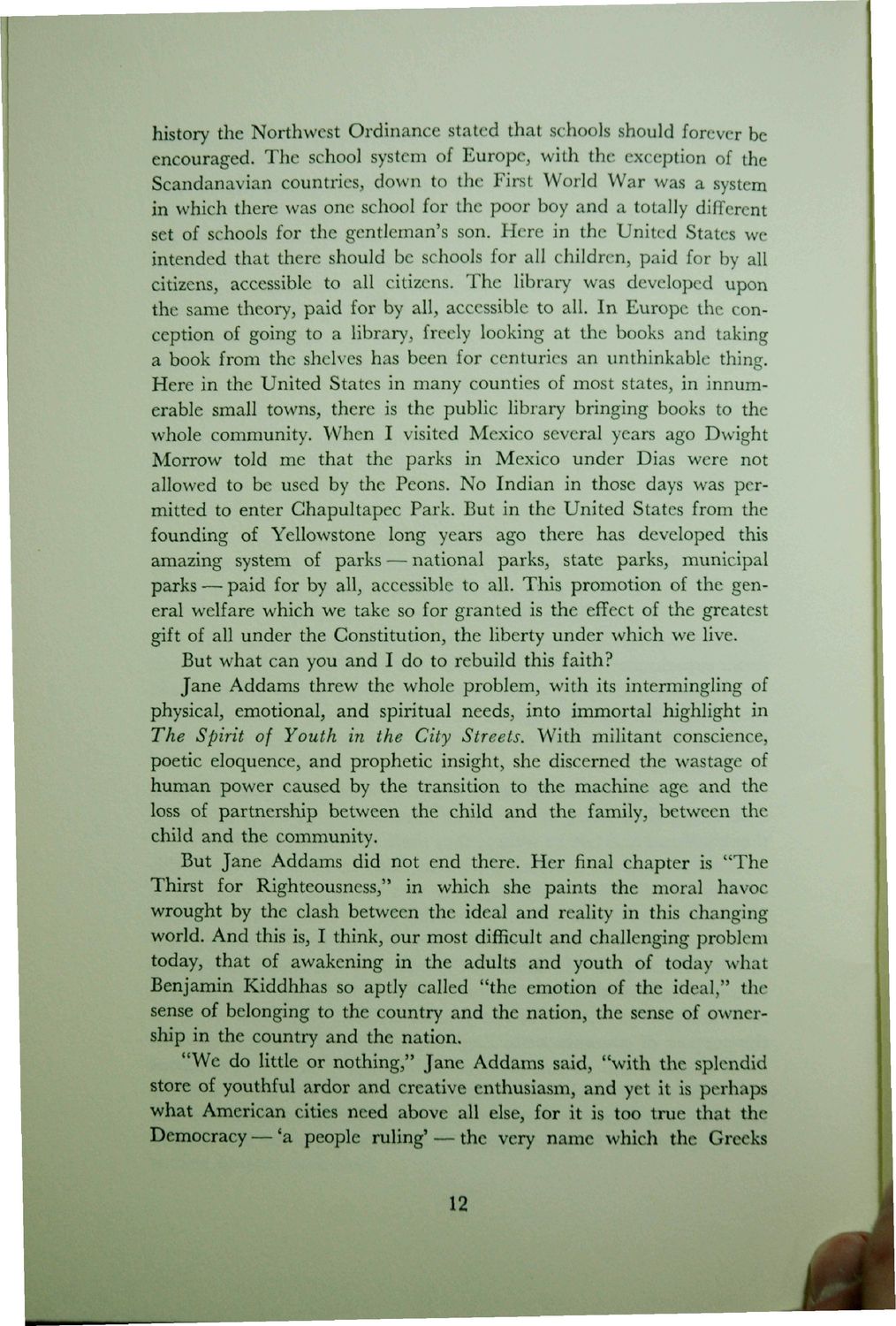| |
| |
Caption: Dedication - Home Economics - Challenge of Home Economics
This is a reduced-resolution page image for fast online browsing.

EXTRACTED TEXT FROM PAGE:
history the Northwest Ordinance stated that schools should forever be encouraged. The school system of Europe, with the exception of the Scandanavian countries, down to the First World War was a system in which there was one school for the poor boy and a totally different set of schools for the gentleman's son. Here in the United States we intended that there should be schools for all children, paid for by all citizens, accessible to all citizens. The library was developed upon the same theory, paid for by all, accessible to all. In Europe the conception of going to a library, freely looking at the books and taking a book from the shelves has been for centuries an unthinkable thing. Here in the United States in many counties of most states, in innumerable small towns, there is the public library bringing books to the whole community. When I visited Mexico several years ago Dwight Morrow told me that the parks in Mexico under Dias were not allowed to be used by the Peons. No Indian in those days was permitted to enter Ghapultapec Park. But in the United States from the founding of Yellowstone long years ago there has developed this amazing system of parks — national parks, state parks, municipal parks — paid for by all, accessible to all. This promotion of the general welfare which we take so for granted is the effect of the greatest gift of all under the Constitution, the liberty under which we live. But what can you and I do to rebuild this faith? Jane Addams threw the whole problem, with its intermingling of physical, emotional, and spiritual needs, into immortal highlight in The Spirit of Youth in the City Streets. With militant conscience, poetic eloquence, and prophetic insight, she discerned the wastage of human power caused by the transition to the machine age and the loss of partnership between the child and the family, between the child and the community. But Jane Addams did not end there. Her final chapter is "The Thirst for Righteousness," in which she paints the moral havoc wrought by the clash between the ideal and reality in this changing world. And this is, I think, our most difficult and challenging problem today, that of awakening in the adults and youth of today what Benjamin Kiddhhas so apdy called "the emotion of the ideal," the sense of belonging to the country and the nation, the sense of ownership in the country and the nation. "We do little or nothing," Jane Addams said, "with the splendid store of youthful ardor and creative enthusiasm, and yet it is perhaps what American cities need above all else, for it is too true that the Democracy—*a people ruling* — the very name which the Greeks 12
| |